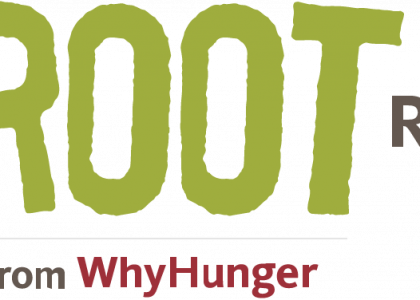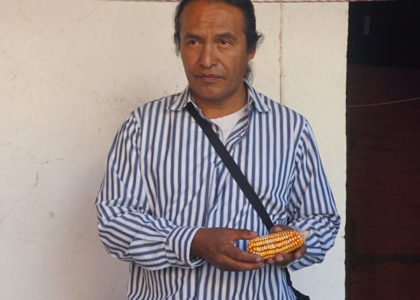In honor of National Women’s History Month, for this month’s reading list, we’re highlighting works by women working in and/or leading movements in the food
Read More
Our Mission Explained: A World Without Hunger is Possible
whyhunger
When we say ‘a world without hunger is possible,’ we mean it. WhyHunger’s work starts with asking why? People aren’t going
Read More
Our Mission Explained: Introducing WhyHunger’s The Why? Series
whyhunger
We don’t need to feed the world. The world can and must feed itself. WhyHunger envisions a fundamental shift in the
Read More
Root Report: Repairing to Regenerate: Northeast Farmers of Color Land Trust
whyhunger
“Access to land is the number one barrier for people of color to feed our communities healthy, fresh food, ” according
Read More
Root Report: Restoring Power to Rural Farming Communities
whyhunger
Farming and agriculture were once a major source of wealth for Black American families. In 1910, up to 80% of the
Read More
WhyHunger Joins Millions to Call Out Unjust UN Food Systems Summit
whyhunger
WhyHunger stands in solidarity with the hundreds of grassroots organizations and social movements, representing over 380 million people around the
Read More
USFSA Documents the Fight for Food Sovereignty in the USA
whyhunger
by Timothy Karoff In October of 2018, the US Food Sovereignty Alliance (USFSA) hosted its fourth National Assembly. Representatives from seventy-one organizations and seven
Read More
En Defensa del Maíz: Una mirada a la decisión de México de eliminar las importaciones de maíz transgénico
whyhunger
Read in English Por Jusleen Basra "El maíz es el elemento central de la forma de vida de las comunidades indígenas. Podríamos decir que el
Read More
In Defense of Corn: A Look into Mexico’s Decision to Phase Out GM Corn Imports
whyhunger
Leer en Español by Jusleen Basra “Corn is the central element of the Indigenous communities' way of life. We could say that corn is the
Read More
Root Report: From Piggy to the Bank: Women’s History Month Spotlight
whyhunger
A collective of 30 women farmers in rural El Salvador called The Cooperativa de Producción Agropecuaria y Servicios Múltiples Mujeres Obrajuelences (ACOPAMO)
Read More







